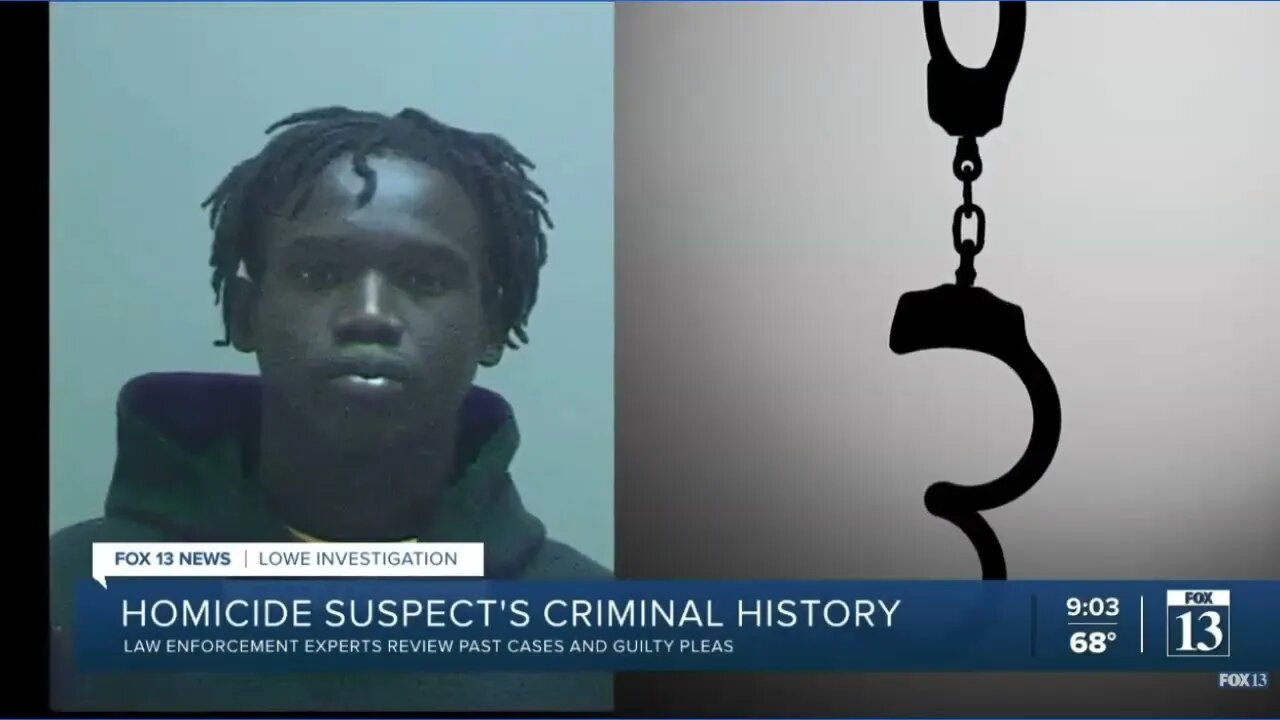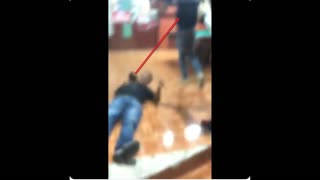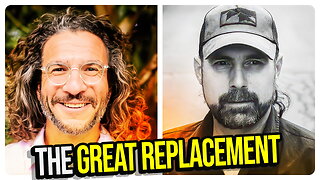Premium Only Content

Aaron Lowe Murder Case Exposes Our Corrupt Injustice System - Career Criminal Buk M Buk
SALT LAKE CITY — The man accused of killing a University of Utah student-athlete has a history of committing violent crimes.
Buk Mawut Buk, 22, faces murder charges after Aaron Lowe was shot outside a house party on September 26.
“We have a process. We take violent crime very seriously,” said Salt Lake County District Attorney Sim Gill.
Buk was accused of a string of crimes in 2019.
According to court records, he was charged with aggravated robbery after stealing $290. The victim told investigators that Buk and another suspect “pulled out a gun and a knife.”
The aggravated robbery charge was dismissed and Buk pleaded guilty to a less severe charge of robbery.
He was also charged with robbery after stealing $300 from a victim who thought he was meeting Buk to purchase an iPhone.
“Might have had some evidentiary issues with that,” Gill explained. “At that time, a prosecutor did a global resolution, taking all of those cases as two second-degree robberies and convicting him of those.”
Buk was sentenced to a year in the county jail.
After his release, he was arrested in November 2020 and charged with illegally possessing a gun.
According to charging documents, Buk was in a stolen car where a stolen handgun was found. Investigators said he was carrying ammo.
#BlackLivesMatterSometimes #GovWillNotKeepYouSafe #KeepYourPowerDry
That charge was also dropped and he pleaded guilty to failing to stop at an officer’s command.
He was sentenced to 115 days in jail and released in March 2021.
“There were four individuals, so they could not decide whose gun it was,” Gill explained when describing why the gun charge was dropped. "We couldn't meet our burden of proof."
Now, the focus is on the future and building a case that gets justice for Aaron Lowe.
“We follow the evidence, and we prosecute and file charges based on evidence we have,” Gill said.
Formal charges against Buk have not yet been filed with the court.
Prosecutors have 72 hours to do so or request an extension from the court.
-
 2:39
2:39
Good Luck America
1 month agoCatholic festival in central Mexico Shooting - AK 47 Used
1.13K11 -
 LIVE
LIVE
Kim Iversen
2 hours agoIsrael DEMANDS X Remove Posts and X COMPLIES | Socialist Groceries Coming To A Store Near You!
1,071 watching -
 1:11:53
1:11:53
vivafrei
9 hours agoThe Great Replacement of American Truckers With Unskilled Foreign Labor - Live with Gord Magill
75.6K54 -
 1:05:13
1:05:13
Sarah Westall
2 hours agoEU Falling, United States Barely Hanging on - Strength and Courage Needed to Fight for Free Speech
9.27K1 -
 LIVE
LIVE
LFA TV
11 hours agoLFA TV ALL DAY STREAM - TUESDAY 8/19/25
1,086 watching -
 2:11:18
2:11:18
The Quartering
4 hours agoToday's Breaking News! Disgusting Grocery Shopping "Haul" Goes Viral, Las Vegas Collapse & More
85.4K30 -
 LIVE
LIVE
StoneMountain64
5 hours agoBest Extraction shooter is FINALLY on Console (+CoD Reveal Today)
172 watching -
 3:04:51
3:04:51
Due Dissidence
7 hours agoZelensky RETURNS To DC, HUGE Protests In Israel, Gal Gadot Blames Palestine For Flop, MSNBC Rebrands
31.4K15 -
 1:19:29
1:19:29
The HotSeat
2 hours ago🚨 Dems Swear Mail-In Voting Is “Secure”… Trump Says HELL NO 🚨
14.2K9 -
 LIVE
LIVE
Reidboyy
9 hours ago $0.71 earnedNEW FREE FPS OUT ON CONSOLE TODAY! (Delta Force = BF6 Jr.)
45 watching